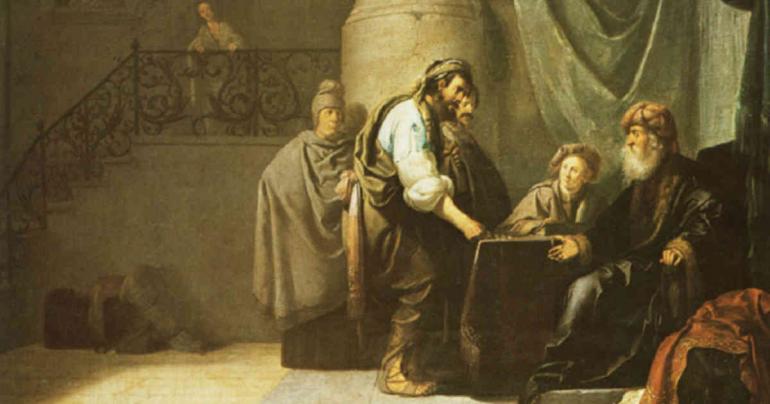To forgive is divine!

March 5, Tuesday of the Third Week of Lent
Memorial of St. John Joseph of the Cross
Daily Readings: Daniel 3:25, 34-43, Matthew 18:21-35
Prophet Daniel is in Babylonian exile. His friends, Azariah, Hananiah, and Mishael, were thrown into the fire to eliminate the god-fearing men surrounding him. He makes an earnest prayer among the flames, hoping that God will not abandon him and his companions. He asks God to intervene and not forget the covenant that He made with the Patriarchs Abraham (God’s beloved), Isaac (God’s servant), and Israel (God’s holy one). He laments that his country has become so insignificant, despite God's promise to make it like the stars of the sky and the sand of the sea.
There is an irony here. It looks as if God has forgotten the covenant that He has made. During the exile, the people of Israel touched an all-time low, as there was no prince, leader, prophet, holocaust, sacrifice, oblation, incense, or place of first fruits before God. It is a big blow to their ethos. Therefore, Azariah is pleading for God’s mercy.
People say that to err is human and that forgiveness is divine. Humans find it difficult to forgive others due to their limitations. Peter’s question regarding how many times to forgive the offender has to be seen from a different perspective. Peter has to learn to forgive not just 490 times but without any limit. Every time the offender seeks forgiveness, others must forgive him or her.
To drive home this particular teaching, Jesus comes up with a parable. The king forgives his servant for no less than 150,000 years' income (10,000 talents; one talent is 5475 denarii). One denarius is one day’s wage. When the servant who received forgiveness is unable to show the same mercy to his servant, who owes just 547,500,000 denarii, the debt dwarfs the original amount. The ungrateful and unforgiving servant is unable to realize that forgiveness is relational and reciprocal. Jesus concludes the parable by asserting that those who don’t forgive will have to pay a higher price.
Call to Action for Catholic Living: It is deplorable that human beings who enjoy God’s forgiveness all the time are not able to replicate it. What shall I do to learn to forgive others more and more?
Radio Veritas Asia (RVA), a media platform of the Catholic Church, aims to share Christ. RVA started in 1969 as a continental Catholic radio station to serve Asian countries in their respective local language, thus earning the tag “the Voice of Asian Christianity.” Responding to the emerging context, RVA embraced media platforms to connect with the global Asian audience via its 21 language websites and various social media platforms.














